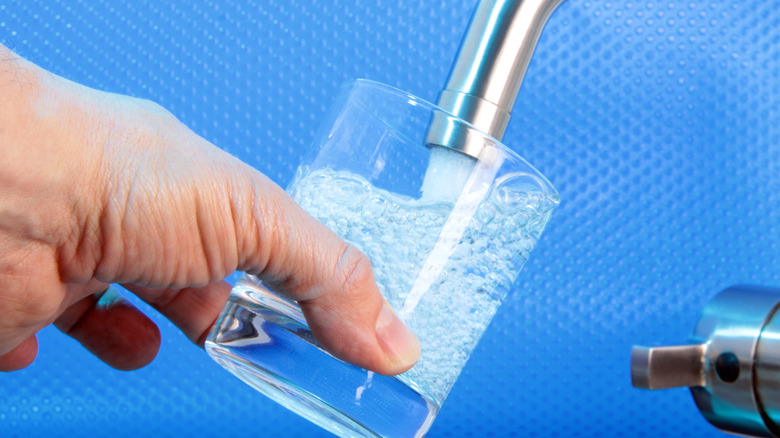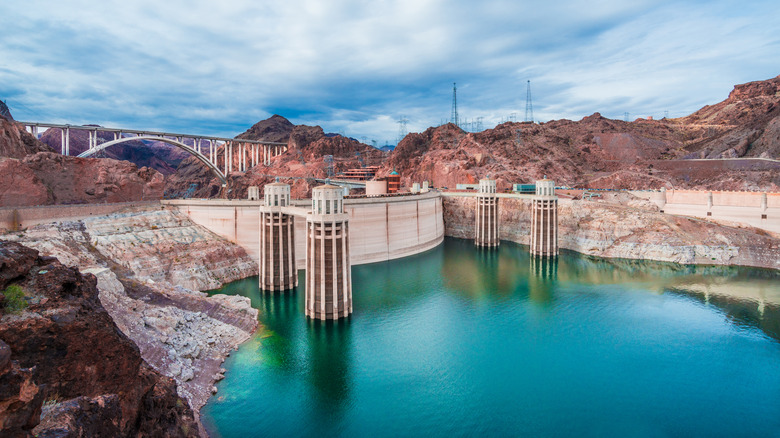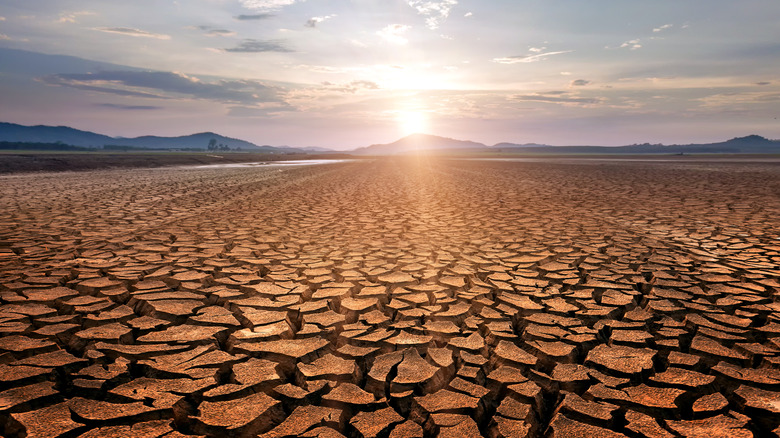Here's What Would Happen If The US Ran Out Of Water
The United States often experiences drought-like conditions that cause water shortages and lead to usage restrictions in many states, per National Geographic. But just how serious is America's water shortage? Do we really not have enough freshwater reservoirs to make up for it?
Well, sort of. The U.S. has about 3,069 cubic kilometers of freshwater resources, 77% of which is surface water found in lakes, rivers, and reservoirs, according to World Atlas. Although this might seem like a massive number, the U.S. is third in the world when it comes to freshwater resources.
Brazil (a country slightly smaller than the US) has 8,233 cubic kilometers of fresh water available — more than any other country in the world. Still, certain regions of the country experience severe drought issues, especially in densely populated areas.
Thanks to Lake Baikal, the world's largest freshwater lake, Russia holds position number two for freshwater resources. In fact, Lake Baikal alone holds 20% of the freshwater available in the entire world, even though climate change has been draining the volume of the lake over the past few years.
In the U.S., Lake Mead — created by the Hoover Dam — is the largest freshwater reservoir. Nevertheless, the reservoir has been under capacity since 1983 because there's just not enough water to fill it, per Tata & Howard.
So, things are bad, but can we really run out of water?
Even though it looks like there's a lot of water on Earth, the EPA points out that less than 1% of it can be actually used by humans. The rest is salt water or inaccessible because it's frozen or too far away from civilization to be usable. In short? We actually have a lot less water available than we think we do. Americans also use a lot of water on a daily basis — an average of over 300 gallons per family every day. Much of this water is used for everyday indoor activities like showering, washing clothes, and using the toilet.
According to model projections published in the journal Earth's Future, population growth and climate change could potentially shrink half of the U.S.'s freshwater resources by the year 2071. If this happens, America will not have enough water for everybody — at least not at the levels it's being consumed today (via Harvard University).
A solution that has worked for decades around the world – rainwater harvesting — might no longer be viable either. Countries like Singapore are already covering 30% of their water needs through rainwater harvesting, but the U.S. isn't there yet (per BBC). To make matters worse, climate change is also affecting rainfall patterns in various regions of America – some receive more, others less.
Let's say we do run out of water — what next?
With fresh water in short supply, the U.S. might need to turn to desalinization plants to produce more drinkable water. According to National Geographic, the U.S. can already produce 50 million gallons of fresh water a day in desalination plants. The problem with this? Creating drinkable water from salt water is expensive, and this cost would likely be passed on to consumers. The result? Access to water could suddenly become one of your most expensive utilities.
Former World Bank Vice-President Ismail Serageldin once warned that "the wars of the next century will be fought over water." Indeed, tensions around the world are already increasing because of water shortages (per Flux Trends).
While you probably don't have to worry about civil wars over water in most of America, the drought-stricken West Coast could be headed for conflict. According to CNN, California, Nevada, Oregon, and Utah are already experiencing serious problems with water shortages. If this trajectory continues, agriculture will be severely affected. And if keeping crops alive becomes a lot more expensive because of the rising cost of fresh water, your food prices will also rise. In addition, CNBC points out that tourism and homebuilding are severely affected during water shortages and would suffer catastrophic losses if some states run out of water. In the end, the American "water wars" will likely be defined by the collapse of many sectors of the economy.


